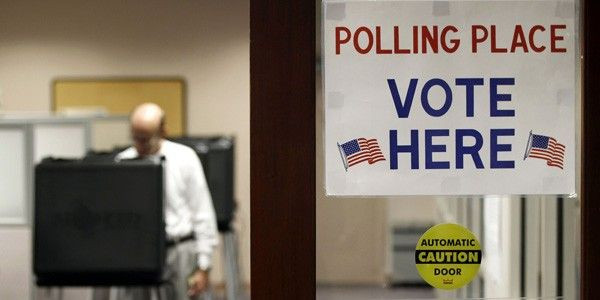Pew Study: 2 Million Deceased Americans on Active Voter Lists, 24 Percent of Eligible Voters Not Registered

Nearly two million deceased Americans are still on active voter lists, while almost one-quarter of the nation's eligible voter population is not registered to vote, according to a new report released Tuesday.
The Pew Center released a comprehensive analysis of the states that paints a picture of a voter registration system in chaos. It found about 51 million eligible voters aren't registered. That's nearly one in four, or about 24 percent of the eligible population.
The study also found 1 in 8 active voter registrations -- about 24 million -- in the U.S. have significant inaccuracies or are no longer valid. Another 2.7 million voters are registered in multiple states, often leading to registration-related problems that can potentially discount thousands of votes.
The antiquated paper-based system that still dominates the nation's registration system may be to blame for the errors plaguing the voter registry databases, the study said.
The inability of this paper-based process to keep up with voters as they move or die can lead to problems with the rolls, including the perception that they lack integrity or could be susceptible to fraud, the study added, saying the U.S. needs to upgrade to an online registration system.
In Canada, for instance, which uses online registration systems and data-matching techniques, 93 percent of the country's eligible population is registered to vote. Meanwhile, the U.S. spends about 12 times more than Canada to maintain its flawed voter list, Pew found.
Meanwhile, the paper-based system has made it difficult to even correct the rampant registration issues.
There are more than 1.8 million deceased people who still have active registration on voter rolls, since the U.S. registration system is reportedly not designed to keep up with deaths as they occur.
Meanwhile, it is exceedingly difficult to even contact the millions of voters with flawed registrations. About 12.7 million records are out of date and no longer reflect the voter's accurate contact information such as addresses, the report said. Many of those voters are likely young Americans, since Census data indicates about one in four young adults move in a given year.
The study is particularly interesting in an election year where several state legislatures have proposed new laws to combat voter fraud, rather than faulty registration techniques. Dozens of primarily Republican lawmakers have proposed legislation purportedly to combat voting fraud, although multiple studies have concluded it is by far a prevalent issue in the U.S.
A majority of the laws have centered around photo ID requirements that Democrats claim specifically target the young, the poor and minorities -- demographics that make up a huge chunk of the Democratic base.
In an attempt to dispel the idea that photo ID laws are even necessary, the head of the American Civil Liberties Union chapter of Minnesota -- where residents are set to vote on a state photo ID requirement in November -- notably offered to pay $1,000 for a single example of a prosecuted case involving someone who successfully voted by impersonating another person.
© Copyright IBTimes 2024. All rights reserved.




















